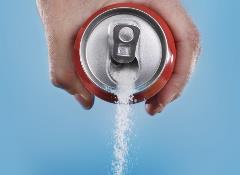 Doctors from the Royal Australasian College of Physicians (RACP) welcome reports that the Australian Beverages Council is committed to reducing sugar but want the industry and the Australian Government to outline its action plan or it’s just “smoke and mirrors”.
Doctors from the Royal Australasian College of Physicians (RACP) welcome reports that the Australian Beverages Council is committed to reducing sugar but want the industry and the Australian Government to outline its action plan or it’s just “smoke and mirrors”.
According to reports, the Council said it is committed to reducing sugar across the industry by 20 per cent by 2025.
“It’s good to see the industry express a commitment to producing healthier products but we want to see the details of its plan to achieve a sugar reduction otherwise it’s just the same smoke and mirrors we usually get,” RACP President, Associate Professor Mark Lane said.
“Soft drinks are a significant source of excess sugar, which is linked to tooth decay in children and many long-term conditions like type 2 diabetes, hypertension, gout and cardiovascular disease.
“Our sugar intake is far too high – the World Health Organization recommends that less than 5 per cent of daily energy intake should come from added sugars – less than 6 teaspoons for women and children and 9 teaspoons for men.
“The latest data available from the Australian Bureau of Statistics show that Australians consume an average of 60 grams of free sugars per day – or around 14 teaspoons of sugar.”
Associate Professor Lane said the RACP supports the introduction of a tax on sugary drinks as part of a set of policies and interventions to reduce the impact of obesity.
“We need to take several practical measures, including a tax on sugary drinks and use the revenue to fund initiatives that encourage healthy diets and physical activity,” he said.
“The Government should revise the Health Star Rating system’s nutrient profiling algorithm to give stronger weight to sugar content and make it mandatory by 2019.
“The Government also needs to stop kowtowing to industry and effectively regulate their marketing activities. The food and beverage industry continue to advertise unhealthy foods and sugar-sweetened beverages in a way that directly targets children and adolescents.”
Taxes on sugary drinks have been introduced in Mexico and in Berkeley, California. Early evaluations of the effect of these taxes suggest substantial declines in retail sales of sugary drinks.
More recently, the United Kingdom’s sugary drinks tax has come into force. Prior to the tax, there is evidence that the tiered volumetric tax has led to some large manufacturers proactively reformulating their sugary drinks to fall below the tax threshold.
By the end of 2018, more than 30 countries around the world will have introduced a sugar tax on drinks to reduce consumption and encourage industry to reformulate products.
Read more about the RACP’s recommendations for addressing obesity, in its recent position statement and evidence review.